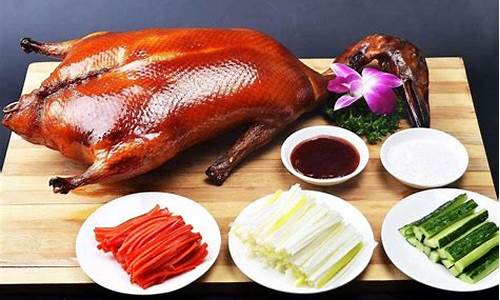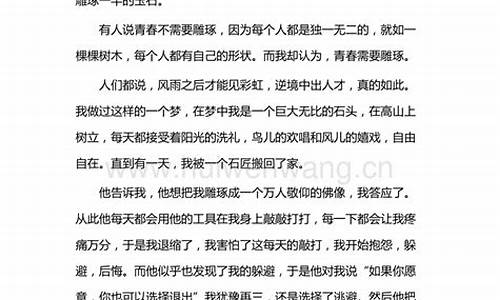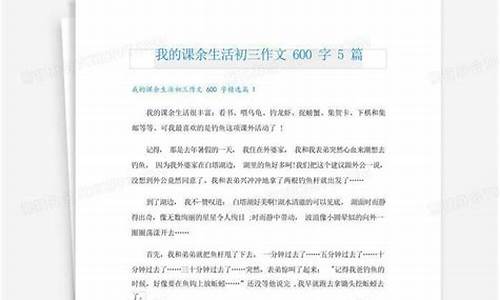informationage范文_information and society作文

12 Affordable Ways To Good Health
#1 Exercise, and at the very least, just walk.
You need to move to burn those calories, to keep your body “oiled” and revving, and your metabolism humming just fine. You also don’t need to pay up to get moving. Even a brisk walk is considered quite healthy so if you can manage a regular exercise regimen comprised of sustained activity for 30 minutes a day, you’re in good shape.
I personally invested in home gym equipment like the kind you find in Bodylastics, Pro-Form and Smooth Fitness. But you should weigh the costs of doing so with how much value you get out of any exercise equipment you decide to buy. Don’t waste your money on things you don’t use!
#2 Sleep earlier.
Those times when I stayed up late or even all night to try to cram even more stuff into an already hectic day are now over. The body just won’t let me do those things anymore! And here’s the reason for improving your sleeping habits: your body heals and repairs itself and does its regulatory job while you’re snoozing. So give it the rest it deserves to keep you chugging along well the next day. A lifetime of bad sleeping habits will no dou take a toll on you and this is one easy way to oid getting sick.
#3 Consider vitamin supplementation.
If you’re not a good eater, you’ll be on your way to depleting your body of required vitamins and minerals. Supplements — especially the important ones — are a necessity to help replenish your body’s stores. Certain vitamins and minerals are important to prevent certain diseases from occurring and if you’re not getting them from your diet, consider taking a boost from other nutritional sources. Check out your local health food store or reputable health food sites like Swanson Health Products or The Vitamin Shoppe for the items you need.
I’ve gotten into debates about this with colleagues who believe that you should get all you need from the food you eat, and that would be true if you eat a healthy diet. Unfortunately, too many people I know don’t follow healthy diets, and probably he nutritional deficiencies. Supplements are there to hopefully help such people get back on track by addressing those gaps. The key here is moderation and ropriate treatment.
#4 Think twice about joining weight loss programs.
They could be a waste of time AND money. How do I know? Well because there are much cheaper alternatives. Not to say that such programs couldn’t work for some people, especially if they’ve already tried everything. For those who truly need the extra help, sites like Medifast and eDiets may be helpful.
#5 Eat more vegetables, cut down on red meat, caffeine, sugar and salt.
Yeah, yeah, yeah….boring. You’ve heard this advice before I’m sure — maybe too often. And these are some of the hardest things to do, if I say so myself. But I am practicing what I’m preaching here. How many times he I heard that we should consume several servings of vegetables a day consistently? Yech. And reduce the amount of red meat we eat? Dang. What about my forite foods: coffee, sweets, junk/processed food and french fries? Well, I am now reaching middle age and I’m beginning to see people in my life falling into the clutches of diabetes, high blood pressure and heart disease. Things are getting too close to home, so I’m changing my diet before I really pay for the junk I consume. It’s hard but I’m making it a gradual process and so far, I’m making some strides. Don’t forget too that by cutting out the junk, you’re sing money.
#6 Never skip breakfast.
I used to be one of those breakfast skippers who would pile it on heily in the evening. This is because I wasn’t hungry in the morning but terribly so at night. I thought it was just the way some of us were, that it was a natural cycle for some people. But in reality, these are bad habits that your body has become accustomed to doing and that needs to be broken. I look upon one of my co-workers as an example: he doesn’t he breakfast but eats non-stop when he gets home from work all the way till bedtime. Let’s just say this whacks out a body’s rhythm and does a number on glucose levels. Needless to say, the guy isn’t exactly in tip top shape nor healthy looking. But, I was surprised to learn how actually easy it is to retrain yourself into breaking those bad eating habits and found that my eating cycles are now better regulated resulting in less food consumed each day and overall improved health.
#7 Never eat an incomplete meal.
I’ve actually made an investment in my health by seeing a nutritionist on occasion to correct my lifelong wrongs when it came to food and diet. Among the simplest, yet most valuable information I picked up (which I’m sure you can learn from other sources) is this: never eat an incomplete meal. What does this mean? This means that each meal we take should always contain all three basic food groups: carbohydrates, healthy fats and protein, because your body needs all three food elements to absorb properly and most efficiently in your body.
#8 Don’t let yourself go hungry.
It’s weird but I also learned that if you can be proactive and anticipate when you’ll be hungry, and actually eat something before you do, you’ll eat less, and better. If you eat right after you find yourself starving, you’ll end up devouring more than you need to. By the same token, if you eat slowly and chew your food well, you’ll be able to control your food consumption better.
#9 Don’t stress out.
Those health experts keep saying it: toxins are all over our environment invading our systems, but some of these things are just not within our control. I’ll guarantee you’ll be breathing second hand smoke, car fumes and smog every time you go out of the house and enter a city. What about chemical agents in our hair spray, pesticide in our food or toxic materials hiding in old buildings where you work? You can’t escape these things. Well, one thing you can control is how stressed you are. Stress impacts your body in the same way terrible toxins do, so do your best to oid it.
#10 Wash your hands often.
Avoid getting sick by washing your hands often. Unless you don’t mind catching a bout of the cold or flu once in a while, or being a little dirty, which is actually good for you. I’ve had interesting conversations with a co-worker who advocates germs and infections as the way to better health in the long run. That’s because your body builds up its defenses and immune system by falling ill. But as a parent of a school-aged child I still don’t like catching annoying colds, plus getting sick often doesn’t seem to he improved my health.
#11 Toss the vices.
The spirit is willing, but the flesh is weak. It’s something you just cannot “nag” someone to do, since many a time, they’d rather take the chance and possibly face the consequences of their long term habits at a later time. After all, the reasoning goes, you can just as easily get run over by a bus than pick up health problems from some random vice. Still, you know the drill. And one other sticking point is how much you could actually se by giving up these extras.
#12 Visit your doctor for annual tests.
Those annual tests are covered by your health insurance or can be performed through free or low cost programs. Routine tests can catch problems early on before they develop into real trouble later. Don’t let it grow into a big issue that costs a lot to deal with.
So just remember that an ounce of prevention is worth a pound of cure!
英语句子的成分共九类,其中最主要的句子成分包括:主、谓、宾、表、定、状、补语和同位语。
1、主语(Subject)是句子的核心,是人或事。
(a)位置:通常位于句子的开头或位于谓语动词前,表明动作的主体。
(b)可以作主语的成分包括:名词、代词、数词、主语从句(what/that/how/whether从句等)、现在分词(-ing)和动词不定式(todo)、the+adj.结构。
(c)Studythefollowingexamplesandunderlinethesubjectineachsentence.
Eg1.Anearthquakehasclaimedhundredsoflives.
Eg2.Whetherthefootballgamewilleddependsontheweather.
Eg3.Theignorantcanbefearless.
2、谓语(Predicate)用来描述主语的动作、状态或特征。
(a)位置:通常紧接着主语。
(b)可以作谓语的成分包括:动词、情态动词+动词。
(c)Studythefollowingexamplesandunderlinethepredicateineachsentence.
Eg1.Lifeisfullofupsanddowns.
Eg2.Youcannotcontrolyourlife,butyoucancontrolyourattitudetowardslife.
Eg3:Inthisdayandage,anincreasingnumberofpeopleagreethatgambling()isanunwholesomehobby.
3、宾语(Object)用来表示动作或行为的对象。
(a)位置:位于及物动词或介词后面。
(b)可以作宾语的成分包括:名词、代词、数词、复合结构(双宾语等)、从句(what/that/how/whether从句等)、现在分词、动词不定式。
(c)Studythefollowingexamplesandunderlinetheobjectineachsentence.
Eg1.Junkfoodimpairspeople’shealth.
Eg2.Changewhatyoucanbear,whilebearwhatyoucannotchange.Eg3.Studiesrevealthatthereisadefinitelinkbetweenobesity(肥胖症)andseriousdiseasessuchasheartattacks.
4、表语(Predicative)。
(a)位置:位于be动词或系动词(如:look,seem,详见《讲义》P8)。
(b)可以作表语的成分包括:名词、代词、数词、形容词、副词、介词短语、现在分词、过去分词、动词不定式或从句(what/that/how/whether从句等)。
(c)Studythefollowingexamplesandunderlinethepredicativeineachsentence.
Eg1.Lifeisastage.
Eg2.Ifeelundertheweathertoday.
Eg3.Whatweshoulddoistoteachchildrenhowtodistinguishgoodfrombad(rightfromwrong).
5、定语(Attribute)用来修饰名词或名词性词组。
(a)位置:通常位于名词或名词性词组之前,有时也可放在之后(Iwantsomethingtoeat)。
(b)可以作定语的成分包括:形容词(最常用)、代词、数词、名词、名词所有格、介词短语、现在分词、过去分词、动词不定式和定语从句。
(c)Studythefollowingexamplesandunderlinetheattributeineachsentence.
Eg1.Awarmsmileistheuniversallanguage.
Eg2.Inrecentyears,theInternethasbeengaininginpopularityatanamazingrate/atlightningspeed.
Eg3.Thosewhohespentsometimeearningalivingortrelingtootherplaces,heabroaderviewoflife.
6、状语(Adverbial)用来修饰动词、形容词、副词或整个句子。
(a)位置:通常位于动词、形容词、副词或句子的前后。
(b)可以作状语的成分包括:副词(最常用)、介词短语、名词、动词不定式、现在分词、过去分词、状语从句和状语从句省略结构。
(c)Studythefollowingexamplesandunderlinetheadverbialineachsentence.
Eg1.Outdooractivitiescangreatlyimproveourhealth.
Eg2.Comparedwiththecorrespondingperiodlastyear,importsinthefirstthreemonthsheincreasedby10percent
Eg3.WhenIwasyoung,Iwasatroublemaker.
7、补语(Complement)对于主语或宾语进行补充说明。
(a)分为主语补足语(补充说明主语的性质或状态)和宾语补足语(补充说明宾语的性质或状态)。
(b)在雅思写作中,主要的宾补结构主要是双宾语结构。
(c)Studythefollowingexamplesandunderlinethecomplementineachsentence.
Eg1.Iregardyouasmybestfriend.
Eg2.Thegraduatesfindthejobmarketfrustratingbecauseoftheeconomicrecession.
Eg3.Theadventofinformationagemakestechnicalknowledgemorecrucialthanever.
8、同位语(Appositive)表明句子中的一个成分与另一成分表达同一概念,即A=B。
(a)可以作同位语的成分包括:名词、代词、数词、形容词、介词短语、从句、动词不定式和现在分词。
(b)Studythefollowingexamplesandunderlinetheositiveineachsentence.
Eg1.WeshouldaskJim,themonitor,tobepunctual.
Eg2.Jobsatisfaction,eryimportantpartofanemployee’ssenseofwell-being(幸福,安宁),canbepromotedinmostjobs.Eg3.Allcountries,bigorsmall,shouldbetreatedequal.
9、补充解释。
()主谓宾结构为一种文法的语序,即语法顺序为主语—谓语—宾语的结构,像英文的Ieatles就是一个例子,在此范例中I为主词(主语,人),eat为动词(谓语动词),les为名词(宾语,物)。所以也可以理解为两物(或一人一物)一动作为主谓宾结构。
(2)主语是句子叙述的主体,可由名词、代词、数词、名词化的形容词、不定式、动名词和主语从句等来承担。
(3)谓语说明主语所发出的动作或具有的特征和状态。谓语由动词来承担。
(4)宾语是动作的对象或承受者,常位于及物动词或介词后面。宾语可由名词、代词、数词、名词化的形容词、不定式、动名词、宾语从句等来担任。
(5)主谓结构:Irun谓语一般是不及物动词,后面不加宾语。
(6)主谓宾结构:Iplaybasketball这里的谓语是及物动词后面加宾语。
(7)主谓加双宾:Igiveyouabook这里的you.book都是宾语。
声明:本站所有文章资源内容,如无特殊说明或标注,均为采集网络资源。如若本站内容侵犯了原著者的合法权益,可联系本站删除。












